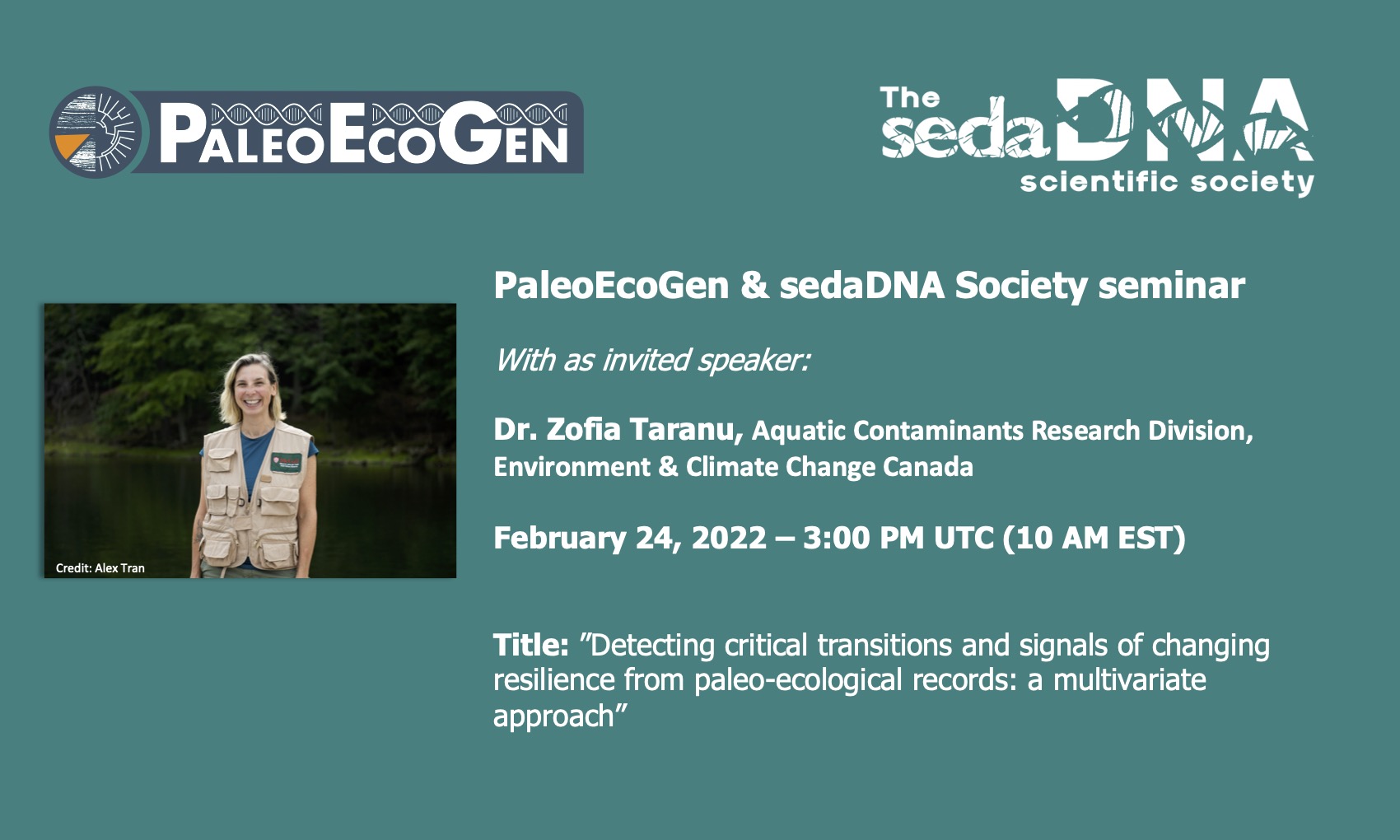 mcgill.ca
mcgill.ca
The PaleoEcoGen Working group invites anyone interested to attend a monthly Webinar Series.
24 February 2022 – 3pm UTC
"Detecting critical transitions and signals of changing resilience from paleo-ecological records: a multivariate approach"
Dr. Zofia Taranu, Aquatic Contaminants Research Division, Environment & Climate Change Canada
Join here: https://mcgill.zoom.us/j/89927658215
Brief description
The objective of my research is to understand how human-mediated local stressors (e.g., land use, eutrophication) interact with regional drivers (e.g., climate) to alter freshwater communities and ecosystem stability. In particular my work has examined how biodiversity loss vs. gain may lead to changes in multi-trophic species interactions, which in turn may lead to the dominance of harmful species (e.g., cyanobacteria) and destabilization of aquatic ecosystems via regime shifts.
I am especially interested in whether these interactions have become more pronounced in recent times or in certain locations, and identifying the processes that cause discrepancies across studies. I use a combination of meta-analyses, landscape paleolimnology and numerical ecology to identify data gaps, generalities and long-term drivers of shifts in water quality, community composition and ecosystem functions.
During this talk, I will highlight some of my recent work on detecting regime shifts and critical transitions with paleolimnological records. In particular, I will build on an earlier study (Taranu, Carpenter, et al. 2018) by extending our univariate models to multivariate models. By examining changes in the functional composition of the community (multivariate models), we hope to provide a better diagnostic of an approaching critical transition than that of the univariate models. This would also allow to test whether regime shifts and critical transitions could be upscaled to the whole aquatic ecosystem. That is, whether resilience indicators at one trophic level are detectable in other components of a food web.

More information
For more information on the PaleoEcoGen working group, visit the web page here: https://pastglobalchanges.org/science/wg/paleoecogen
For an overview of upcoming and past seminars, visit the seminar series page here: https://pastglobalchanges.org/science/wg/paleoecogen/seminar-series
To contact a member of the PaleoEcoGen steering committee, visit the People page here: https://pastglobalchanges.org/science/wg/paleoecogen/people